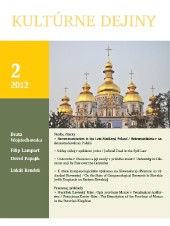Excommunication in the Late Medieval Poland
Excommunication in the Late Medieval Poland
Author(s): Beata WojciechowskaSubject(s): History
Published by: VERBUM - vydavateľstvo Katolíckej univerzity v Ružomberku
Keywords: Poland; Middle Ages; excommunication; ecclesiastical curse; canon law
Summary/Abstract: The sanction of excommunication in the 13th century was often used by the Polish church hierarchy, which was focused on gaining economic independence, protection of Church property and organization of judicature independent from princely authority. Excommunication was a means by which the Church imposed and exacted its norms of law which referred to religious and intimate life, and many aspects of public life. In the 14th and 15th centuries, excommunication was applied almost universally. In the normative literature of the Church, the catalogue of respective matters was unusually long. In practice, however, on the Polish territories it was primarily imposed for tithe debts, for not fulfilling financial liabilities in kind for the benefit of parsons, other clergy or laymen, for transgressions in legal procedure, violation of clergymen’s estates. It was imposed more seldom in matrimonial matters, including even adultery and bigamy; however, it was imposed exceptionally for practising usury. It was not imposed for offences of moral nature. In religious life a great importance was attached to the duty of yearly confession and communication in the period of Easter. In case of heavy sins (manslaughter, rape, robbery, arson), which were crimes according to secular law, excommunication accompanied secular punishment and release from excommunication was to be preceded by a special ritual of public penance.
Journal: Kultúrne dejiny
- Issue Year: 2012
- Issue No: 2
- Page Range: 176-197
- Page Count: 22
- Language: English

